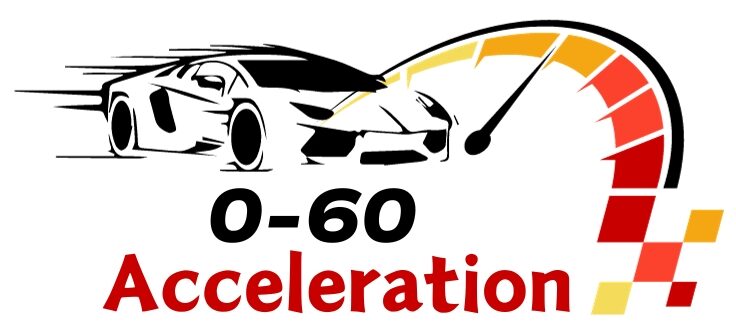
What does it really mean when a car hits 60 mph in 6 seconds? In a world where sports cars aim for 3 seconds and family sedans cruise at 8, is 6 still considered fast acceleration? The short answer is yes, 6 seconds is still a quick 0-60 time, though no longer blazingly fast by modern standards. This post will examine the 0-60 metric, factors that affect acceleration, how electric vehicles are changing the game, and why 6 seconds, while not blisteringly quick, still delivers an energized driving experience.
We’ll look at the role of power, weight, grip, and transmission type, see how EVs like the Tesla Model S are redefining fast, and contextualize why 6 seconds, though not supercar territory, still makes for rapid real-world acceleration. By the end, you’ll understand why 6 second 0-60 times remain competitive, even as the quest for ever-lower numbers continues.
Understanding Acceleration
Acceleration Basics
Acceleration is the rate at which the velocity of a moving object changes over time. In simpler terms, it is the speed at which a vehicle can go from a standstill to a certain speed. The acceleration of a vehicle is determined by several factors, including the engine power, weight, and aerodynamics.
The most common unit of measurement for acceleration is meters per second squared (m/s²). However, in the automotive industry, acceleration is typically measured in miles per hour per second (mph/s) or seconds to reach a certain speed, such as 0-60 mph.
0-60 mph as a Performance Metric
0-60 mph is a standard performance metric used to measure a vehicle’s acceleration. It refers to the time it takes for a vehicle to accelerate from a standstill to 60 miles per hour. This metric is commonly used by car enthusiasts and automotive journalists to evaluate the performance of a vehicle.
A 0-60 mph time of 6 seconds is considered fast by many people. However, it is important to note that not all vehicles are designed for speed. Some vehicles, such as trucks and SUVs, are designed for hauling and towing, and may not have the same level of acceleration as a sports car.

It is also important to consider that a vehicle’s 0-60 mph time is just one aspect of its overall performance. Other factors, such as handling, braking, and top speed, are also important to consider when evaluating a vehicle’s performance.
In conclusion, 0-60 mph is a commonly used performance metric to measure a vehicle’s acceleration. A 0-60 mph time of 6 seconds is considered fast by many people, but it is important to consider other factors when evaluating a vehicle’s overall performance.
Automotive Performance Standards

When it comes to measuring automotive performance, the 0-60 mph time is a key factor. However, it is important to understand that what is considered a “fast” 0-60 time can vary depending on the type of vehicle.
Sports Car Benchmarks
Sports cars are typically designed for speed and performance, and as such, they tend to have faster 0-60 times than average cars. A 0-60 time of 6 seconds or less is generally considered fast for a sports car. However, there are some sports cars that can achieve even faster times, such as the Bugatti Chiron, which has a 0-60 time of just 2.4 seconds.
Average Car Acceleration Rates
For the average car, a 0-60 time of around 8 seconds is considered good, while a time of 7 seconds or less is considered fast. However, it is important to note that acceleration rates can vary depending on factors such as engine size, weight, and transmission type.
Overall, while a 0-60 time of 6 seconds may not be considered fast for a sports car, it is still a respectable time for the average car. It is important to keep in mind that there are many factors that contribute to a vehicle’s performance, and the 0-60 time is just one of them.
Factors Influencing Acceleration

When it comes to measuring a car’s acceleration, the 0-60 mph time is a popular metric used to gauge a vehicle’s performance. However, there are several factors that can influence a car’s acceleration, including engine power, vehicle weight, transmission type, and tire grip.
Engine Power
The engine is the heart of any car, and its power output is one of the most important factors that affects acceleration. The more powerful the engine, the faster the car can accelerate. However, it’s important to note that engine power isn’t the only factor that affects acceleration. Other factors, such as vehicle weight, can offset the benefits of a powerful engine.
Vehicle Weight
The weight of a vehicle is another important factor that affects acceleration. Generally speaking, the lighter the vehicle, the faster it can accelerate. This is because there is less mass to move, which means less energy is required to achieve a given level of acceleration. Conversely, a heavier vehicle will require more energy to accelerate, which can result in slower acceleration times.
Transmission Type
The type of transmission a car has can also affect its acceleration performance. Manual transmissions, for example, are generally considered to be better for acceleration than automatic transmissions. This is because manual transmissions allow the driver to control the shifting of gears, which can result in faster acceleration times. However, some modern automatic transmissions are designed to shift quickly and smoothly, which can also result in fast acceleration times.
Tire Grip
The grip of a car’s tires on the road is another important factor that affects acceleration. Tires with better grip can provide more traction, which allows the car to accelerate more quickly. This is why high-performance tires are often used on sports cars and other high-performance vehicles. However, it’s important to note that tire grip is not the only factor that affects acceleration, and other factors such as vehicle weight and transmission type can also play a significant role.
Comparative Analysis
0-60 Times in Popular Models
A 0-60 mph time of 6 seconds is considered fast by many people, but it’s important to note that the definition of “fast” varies depending on the type of vehicle. For example, a 6-second 0-60 time is average for sports cars, but it’s considered fast for SUVs and trucks.
Some popular models that can achieve a 0-60 time of 6 seconds or less include the Dodge Charger, Audi S5, and BMW M2. These models are known for their high-performance engines and sporty handling.
Electric vs. Combustion Engines
Electric vehicles (EVs) are becoming more popular, and many people wonder how their 0-60 times compare to those of traditional combustion engines. In general, EVs have quicker acceleration than combustion engines due to their instant torque delivery.
For example, the Tesla Model S can go from 0 to 60 mph in just 2.4 seconds, making it one of the fastest production cars ever made. On the other hand, the Chevrolet Camaro SS can do the same in 4 seconds, which is still considered fast but not as quick as the Tesla.
It’s important to note that EVs have different driving characteristics than combustion engines, so comparing 0-60 times alone may not give a complete picture of their performance. EVs are known for their smooth and quiet acceleration, while combustion engines are known for their raw power and exhaust notes.
Overall, a 0-60 time of 6 seconds is fast for many types of vehicles, but it’s important to consider the context and compare it to other models in the same class.
Contextualizing Speed

Racing Standards
When it comes to racing, 0-60 times are an important metric to consider. In drag racing, for example, a sub-6 second 0-60 time is considered fast, and can be competitive in certain classes. However, in other types of racing such as circuit racing, top speed and handling characteristics may be more important factors to consider.
Legal Speed Limits
On public roads, speed limits are in place to ensure the safety of all drivers and pedestrians. In the United States, the maximum speed limit on highways is typically 70-75 mph, and in urban areas it is usually 20-25mph. While a car with a 0-60 time of 6 seconds may be capable of reaching high speeds quickly, it is important to remember that exceeding the speed limit is not only illegal, but also dangerous.
Safety Considerations
In addition to legal considerations, it is important to consider the safety implications of a car’s acceleration capabilities. A car that can reach high speeds quickly may be more difficult to control, and may require more skill and experience to drive safely. Additionally, high-performance cars may have higher maintenance and repair costs, and may require more frequent inspections and upkeep to ensure their safety and reliability.
So, while a 0-60 time of 6 seconds may be considered fast in certain contexts, it is important to consider the broader context of racing, legal speed limits, and safety considerations when evaluating a car’s performance capabilities.
Technological Advancements

With advancements in technology, cars have become faster and more efficient than ever before. The 0-60mph time is a crucial factor in measuring a car’s overall performance, and technological advancements have played a significant role in improving this metric.
Improvements in Engine Efficiency
One of the biggest advancements in engine technology has been the development of turbochargers. Turbochargers compress the air entering the engine, allowing more fuel to be burned, resulting in increased power and acceleration. Additionally, advancements in fuel injection systems have allowed for more precise control over the amount of fuel being burned, further increasing engine efficiency.
Aerodynamics
Aerodynamics play a crucial role in a car’s performance, especially at high speeds. Advances in aerodynamic design have allowed for smoother airflow over the body of the car, reducing drag and increasing speed. Additionally, the development of active aerodynamics, such as adjustable spoilers and flaps, have allowed for even greater control over airflow and improved performance.
Hybrid and Electric Innovations
Hybrid and electric cars have revolutionized the automotive industry. Electric motors provide instant torque, allowing for lightning-fast acceleration. Additionally, hybrid cars combine the efficiency of electric motors with the power of gasoline engines, resulting in even faster acceleration and improved overall performance.
Final Thoughts
When deciding if a 0-60 time is fast, perspective is key. For hardcore enthusiasts seeking extreme performance, 6 seconds may seem moderate. But for the average driver, it delivers a real sense of speed.
Ultimately, fixation on 0-60 times alone can be misleading. While acceleration metrics provide an indication of thrilling potential, the true test is real world driving. Factors like chassis dynamics, steering feel, suspension tuning, and braking performance all contribute to how a car performs and handles.
Rather than obsessing over tenths of seconds, savor the experience as a whole. Some of the most beloved driver’s cars may not win drag races, but they connect driver to machine in magical ways. If a car feels lively and eager when pushed hard into a corner, does it really matter if it crosses the 60 mph mark a blink quicker?
For most, a 0-60 time in the 5-6 second range hits the sweet spot. There’s just enough punchy low-end torque for that feeling of being pressed back into the seat. Enough to make merging and passing easily. ultimately, enjoyment comes not from stats, but from the smile you can’t wipe off your face after a windy back road drive. If a car does that, it’s fast enough.






